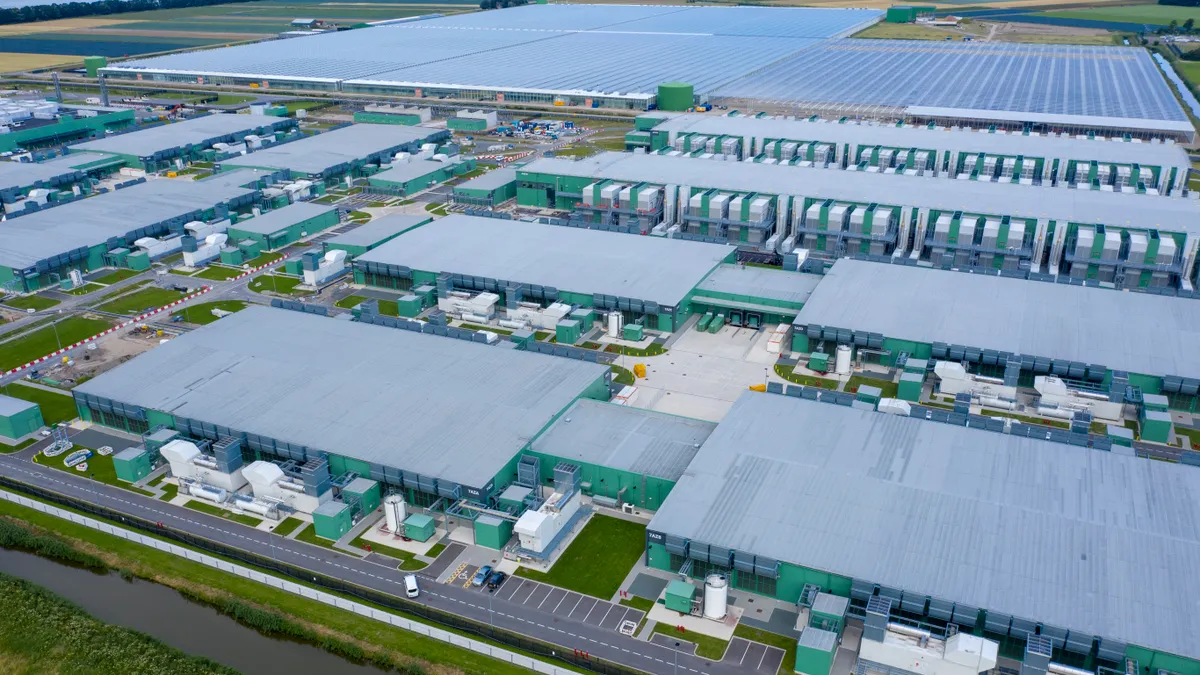Dive Brief:
- State Street and Impax Asset Management shared how chief investment officers at leading asset management and owner organizations are integrating climate considerations into their investment decisions in a report released Thursday.
- State Street and Impax developed the report in their roles as members of the Sustainable Markets Initiative’s Asset Manager and Asset Owner Task Force. The report, which includes recommendations for asset owners, surveyed the chief investment officers from 11 organizations which collectively manage $2.5 trillion in cumulative assets.
- The report is a “summary of pragmatic steps that asset owners earlier in this journey can take to advance their response to the challenges posed by climate change,” according to Jennifer Jordan-Saifi, CEO of the Sustainable Markets Initiative, who penned the foreword. Chief among those steps is a recommendation for asset owners and managers to “recognize climate change as a core investment consideration.”
Dive Insight:
The SMI report said that asset owners and managers are uniquely positioned to play a role in the transition to a “low-carbon and climate-resilient economy,” due to their fiduciary duties to maximize investment values and returns over a long horizon and the amount of assets under management they control. The world’s 100 largest asset owners were in control of $23.4 trillion AUM at the end of 2022, according to a 2023 report from multinational financial services firm Willis Towers Watson.
The interviews were conducted between June and September 2024 and resulted in five “core” recommendations. In addition to recognizing climate change as a core consideration, the asset managers recommend developing strong governance through a dynamic framework; integration of climate across the investment process; building expertise through education, internal specialists and incentives for decision-makers; and engaging on climate change with policymakers “as appropriate.”
“Climate change is not merely an environmental issue, it is a fundamental investment factor, on a par with other long-term risks and disruptions,” Jordan-Saifi said in an Oct. 3 press release. “That is why in the face of the unprecedented global challenges we face today, it is imperative that those with the power to influence the flow of capital recognise the profound impact of climate change on our investment landscape.”
The CIOs told the Sustainable Markets Initiative that climate change and the low-carbon transition are already considered among the “major structural shifts” affecting their portfolios, but noted that management of systemic risks like climate change requires a nuanced approach. Several respondents compared the impact of climate change on their portfolios to the adoption of artificial intelligence or “deglobalisation,” the latter of which has increased as the COVID-19 pandemic, Russia-Ukraine war and climate change led countries to look to onshore or near-shore production of critical technologies and decrease international reliance.
State Street CEO Ronald O’Hanley said in the release that asset owners and managers are increasingly acknowledging climate change as an “important risk” and that the report will offer them “tangible and actionable principles for identifying, assessing, and addressing risks and generating investment returns in face of potential global climate stresses.”
Interviews were conducted under Chatham House rules, allowing State Street and Impax to share the information gleaned without sharing the identities or affiliations of the speakers. Strong governance was mentioned as a key to developing and implementing a “dynamic” framework that can adjust as the issue evolves.
CIOs said it was important to have the governance board’s buy-in and have them educated on the topic, with one CIO telling SMI they spent a year educating their board on how climate change would affect their portfolio.
Ian Simm, Impax’s CEO and founder, said in the release that the report sums up what has and hasn’t worked for asset managers in their response to climate change. He said its results show “understanding and managing climate change’s impact on portfolios is core to delivering attractive investment returns and cannot be ignored.”
The report also recognized there is further work to be done through initiating dialogues with asset managers and applying the same recommendations to “nature-related risks and opportunities.” SMI said it will also prepare a stylized overview of different approaches asset managers and owners are taking to integrate climate change in their investment processes, which will include a series of investment case studies.










